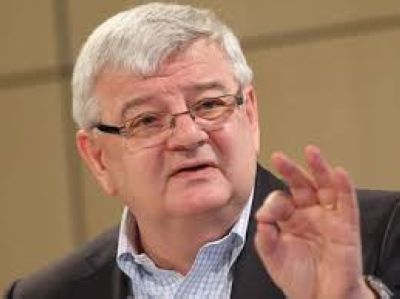BERLIN — The post-1945 era of global stability is over and gone. From the bipolar world of the Cold War to the American-dominated unipolar world that replaced it, we have long benefitted from a sense of strategic order. Though there were many smaller wars (and even some larger ones), from Korea and Vietnam to the Middle East and Afghanistan, the international system remained generally stable and intact.
Since the beginning of the new millennium, however, this stability has increasingly given way to a renewed rivalry between major powers, chief among them the United States and China. Moreover, it has long been clear that India, Brazil, Indonesia, South Africa, Saudi Arabia, Iran, and other emerging economies’ political and strategic influence will increase, as will their role within the global system. In the context of a deepening conflict between China and the US, these rising powers will have many opportunities to play one of the twenty-first century’s two superpowers off against the other. Indeed, many of these opportunities seem too good to miss.
In Russia, meanwhile, political elites have been consumed by fantasies of restoring the territorial reach and geopolitical heft of the Soviet Union, and of the Russian Empire before it. Under President Vladimir Putin, Russian policy has increasingly been aimed at reversing the legacy of the immediate post-Cold War era. By contrast, the West, meaning the US and the European Union, following its enlargement since 2004, has adhered to the basic post-Cold War settlement in Europe. To that end, it has remained committed to defending basic values such as countries’ right to self-determination and the inviolability of internationally recognised borders.
These diverging values and commitments made a conflict over the Soviet Union’s former republics all but inevitable, as we saw in Georgia in 2008. In Ukraine, the opening shot came when Russia annexed Crimea in 2014; but the breaking point did not come until last February, when the Kremlin launched its full-scale invasion of the country and put a decisive end to the era of peace in Europe. Once again, the continent is dividing into two camps.
Putin’s attempt to rewrite history by force is not only a tragedy for the Ukrainian people and a challenge to European security; it is also a rebuke to the entire international system of nation-states. After all, many of the new and emerging global powers have refused to side unambiguously with Ukraine, and some, following China’s lead, have explicitly sided with Russia or remained “neutral” in the interest of gaining some tactical advantage. The implication is that these countries are willing to overlook a flagrant violation of the core principles underpinning global stability.
But the broader danger for the international system stems not from the war in Ukraine (Russia is too weak to pose a truly global threat), but from the deterioration of US-China relations. True, notwithstanding China’s bellicose rhetoric over Taiwan and its aggressive naval exercises in the waters around the island, the confrontation so far is less military than economic, technological and political. But that is cold comfort, because it is an intensifying zero-sum conflict.
Some of the biggest losers in this confrontation are likely to be Japan and Europe. Chinese firms have built massive production capacities in the automobile industry, especially in electric vehicles (EVs), and are now poised to outcompete the European and Japanese automakers that have long been globally dominant.
Making matters worse, America’s own response to Chinese competition is to pursue an industrial policy that will come at European and Japanese manufacturers’ expense. Recent legislation such as the Inflation Reduction Act, for example, provides large subsidies for cars produced in the US. From the US perspective, such policies kill two birds with one stone: protecting large domestic manufacturers and providing them with incentives to pursue EV development.
The eventual outcome will be a thorough reorganisation of the global auto industry, with Japan and Europe (primarily Germany) losing competitiveness and market share. And lest we forget, this major economic development represents merely the beginning of a much larger global confrontation and strategic reordering.
Not only must Europe take great pains to preserve its economic model during this reorganisation of the global economy. It also must manage high energy costs, the growing digital technology gap vis-à-vis the two superpowers, and the urgent need for increased defence spending to counter the new threat from Russia. All these priorities will grow even more urgent as the next US presidential election approaches, given the distinct possibility that Donald Trump could return to the White House.
Europe thus finds itself especially disadvantaged. It resides in an increasingly dangerous region, yet it remains a confederation of sovereign nation-states that have never mustered the will to achieve true integration — even after two world wars and the decades-long Cold War. In a world dominated by large states with growing military budgets, Europe still is not a real power.
Whether that remains the case is up to Europeans. The world will not wait for Europe to grow up. If Europe is going to confront today’s global reordering, it had better start soon — or, preferably, yesterday.
Joschka Fischer, Germany’s foreign minister and vice chancellor from 1998 to 2005, was a leader of the German Green Party for almost 20 years. Copyright: Project Syndicate, 2023.
www.project-syndicate.org
